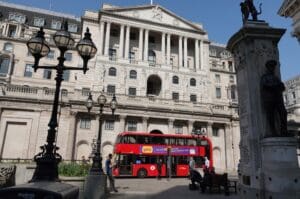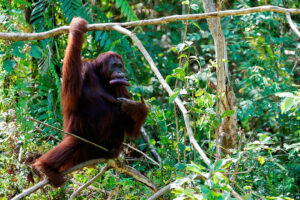SAMBOJA, Indonesia — Just outside Indonesia’s planned new capital on Borneo island, an orangutan catches a banana with one hand, thrown by a conservationist on a boat, while her other hand clings to a tree branch.
She is one of 127 orangutans that the Borneo Orangutan Survival Foundation (BOSF) is caring for in the Samboja district, East Kalimantan. They have lost their homes due to deforestation, often linked to coal mining, and palm oil and timber plantations.
But the giant apes could face an even bigger threat as Southeast Asia’s largest country builds from scratch Nusantara — a new $32 billion city.
The government has promised to protect wildlife and undertake major reforestation in parts of the capital, which has been marketed to investors as a smart and green city.
But environmentalists are wary that construction in an area spanning nearly 260,000 hectares (642,474 acres) — almost four times the size of Singapore — would disturb some of Borneo’s endemic fauna, including endangered long-nosed monkeys, Irrawaddy dolphins and orangutans.
“Our biggest concern is Balikpapan bay will turn into a giant pond, a place for residual waste from Nusantara’s activities,” said Mappaselle, a director with local environment group Pokja Pesisir.
About 400 hectares of mangrove forests along the coastline of Balikpapan bay have already been cleared according to the group’s estimation, to make way for a coal port and oil refinery.
He feared more could be razed when a new toll road is built connecting Nusantara to the nearest city of Balikpapan, as well as a port to bring in construction materials.
The Nusantara Capital City Authority said mangroves would be replanted in other areas and guidelines have been made for workers encountering an animal.
“It’s a very high concern of how we’ll try to have harmony between people, nature and culture…because that’s the soul of the city,” Nusantara chief Bambang Susantono said.
Foundations are being laid for government buildings. Later this year, homes will be built for 16,000 civil servants, military and police officers due to move in next year.
For now, conservationists hope the government stays true to its pledge to care for animals.
“We hope that with the capital city being here, we can pave the way for animals to live side by side (with humans),” said BOSF manager Aldrianto Priadjati.
“At least provide an area for orangutans so they can live a better life.” — Reuters























